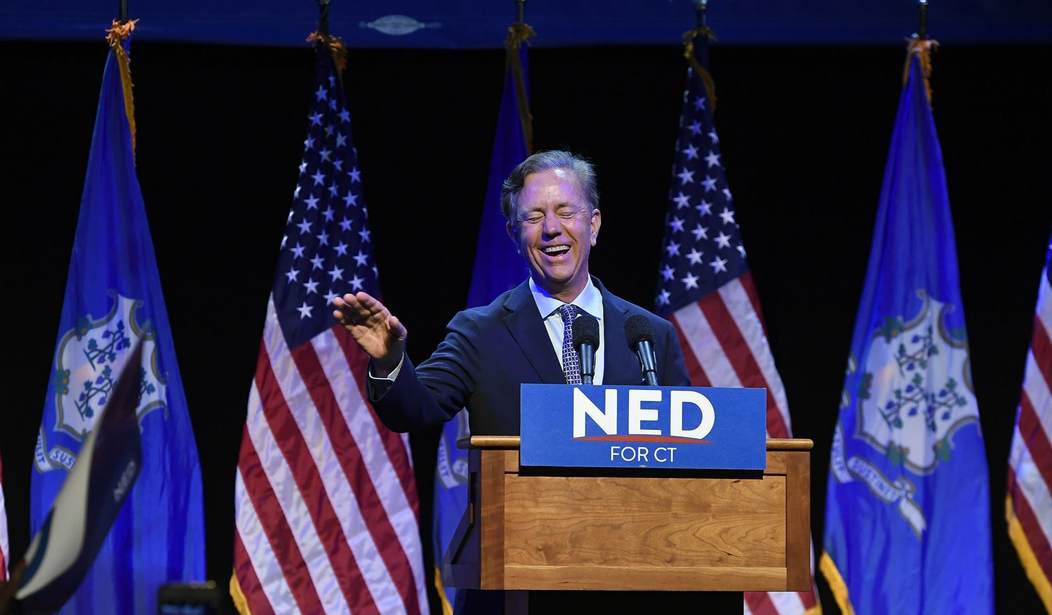Technically the state of Connecticut has already banned “assault weapons”. In fact, it’s the subject of a recent lawsuit filed by Second Amendment advocates. But while the existing ban forbids the manufacture and sale of any modern sporting rifles, it also contains a grandfather clause that allows those who lawfully possessed their rifles at the time the ban took effect to continue to do so.
Newly re-elected Gov. Ned Lamont declared on the campaign trail that he wanted to change that, and vowed to enact a measure that would require every existing owner in the state to turn in their guns or remove them from Connecticut’s borders. With a Democratic majority in the statehouse, Lamont must have felt pretty confident about the odds of success for his gun confiscation plan, but as it turns out there are plenty of Democrats who are lukewarm to the idea.
Twice, in 1993 and then again after the Sandy Hook massacre a decade ago, the General Assembly has passed laws banning the sale of certain military-style weapons, most notably the AR-15 and its many variations.
But each time, the legislature assured gun owners that a “grandfather” provision would allow them to retain those guns. A seizure of tens of thousands of firearms was a legal and political line lawmakers were unwilling to cross.
Sen. Gary Winfield, D-New Haven, co-chair of the Judiciary Committee that is crucial to the passage of gun laws, said he senses no appetite in the General Assembly to go back on the assurances made to gun owners.
“If you’ve told people you’re going to operate in a certain way, particularly grandfathering people and things like this particular issue, it’s a really hard hurdle to clear,” Winfield said.
Even more surprising is the cool reception that Lamont’s gun ban plan has received among gun control activists.
“It’s not on our wish list,” said Jeremy Stein, the executive director of Connecticut Against Gun Violence. “Our top agenda item is to make sure that there is sufficient funding for community violence interruption and intervention.”
Stein was reached for comment while in Washington D.C. for the 10th annual national vigil for victims of gun violence, an observation began after the Sandy Hook mass shooting on Dec. 14, 2012.
“We will continue to have conversations with leadership and the governor and all partners and stakeholders to make sure that we are legislating those things that have the greatest effect of reducing gun violence,” Stein said. “And I look forward to talking with the governor about all of his proposals.”
Stein serves on a 23-member commission created to implement a gun-safety proposal Lamont included in this year’s budget: a requirement that the Department of Public Health establish a community gun violence intervention and prevention program, with initial funding of $2.9 million in federal relief money.
Sincere kudos for Stein for making his group’s top priority funding for legit anti-violence programs instead of demanding yet another gun control law to be placed on the books. Still, Stein didn’t offer any objections to the governor’s proposal, and CAGV isn’t going to actively work against the ban’s passage.
While Lamont’s gun ban may be struggling to find support at the state capitol, there are unfortunately plenty of Democrats who are willing and ready to do something on guns, including the state senator quoted above.
Winfield and Rep. Steve Stafstrom, D-Bridgeport, the other co-chair of the Judiciary Committee, said they were more inclined to review the grandfather provisions that have left unenforceable state bans on ghost guns, which can be assembled at home and have no serial numbers, and large-capacity magazines.
To enforce those bans, the burden is on prosecutors to prove the ghost guns or magazines were obtained after passage of the bans. Stafstrom said he has been approached by prosecutors to revise those bans, not the grandfather provision that allows the possession of registered AR-15s and otherwise banned firearms.
“Look, I agree with the governor that it would be great to do away with the grandfathering of the older firearms. I do think that’s something we should explore,” Stafstrom said. “But the ghost gun issue and the high capacity magazine issue, at least in my mind, are higher priorities right now, because I think they would have a more robust impact on improving safety on our streets.”
I have no idea if Lamont fold on his gun ban plan or will expend political capital and start twisting arms to get his fellow Democrats to go along, but I suspect he’s going to make at least one attempt to bring lawmakers in line. And if he ends up playing “Let’s Make a Deal” with Democrats and the House and Senate, whatever emerges is going to suffer from some serious constitutional defects. Even removing the grandfather clause on “large capacity” magazines or home-built firearms will cause harm to law-abiding gun owners in the state, though in doing so Lamont and his fellow Democrats would only bolster the arguments of the plaintiffs who are already suing over the existing laws.
While Lamont’s proposed gun ban may be on life support, the broader idea of further infringing on the Second Amendment rights of Connecticut residents is alive and well in Hartford. Whatever Democrats come up with, they’re going to face substantial opposition from groups like the Connecticut Citizens Defense League. This year the group and a grassroots army of Second Amendment advocates were able to strip virtually every bit of gun control from a sweeping omnibus public safety measure, and they’ll be looking to build on that success when lawmakers return to the state capitol to kick off the 2023 legislative session in just a few weeks.









